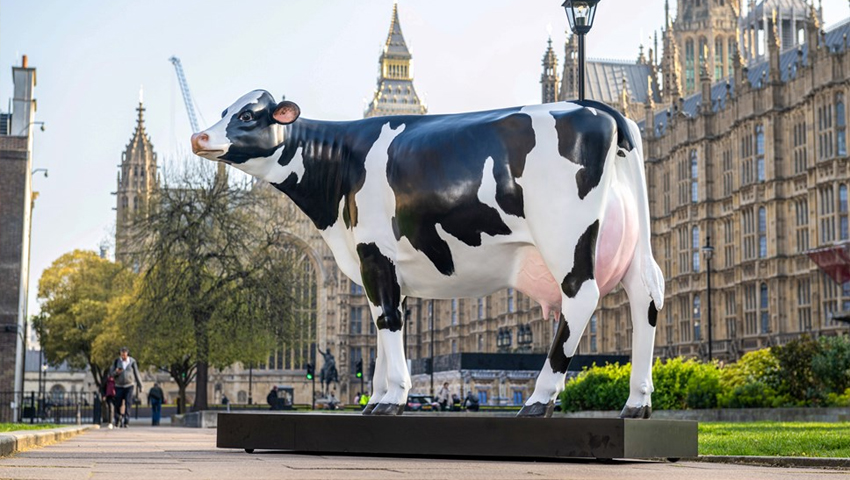A replica Victorian sewer lamp was recently erected near Parliament Square to draw attention to the untapped potential of biogas derived from cow poo and food waste as a renewable energy source.
Tapping into biogas was once a staple of Victorian Britain after Birmingham engineer, Joseph Edmund Webb, patented a sewer gas destructor lamp fuelled by emissions from London’s sewers. Today we can once again harness the power of poo to help solve the UK’s energy security crisis with a nationwide strategy for anaerobic digestion of farm and food waste.
Arla used the event to call on the UK Government to help farmers utilise renewable energy sources like biogas, to support the UK’s energy independence. The dairy cooperative is calling for a national anaerobic digestion strategy incorporating larger community-based facilities generating biogases that can be fed into the gas grid or used in transport, and small scale digesters creating energy for use on farm.
James Pirie, vice president of logistics at Arla, said “Dairy farmers have the potential to play a major role in the future of the UK’s energy security, using natural resources to provide more energy independence. With better infrastructure and network support, Britain’s livestock sector, including Arla farmers, have the potential to turn nearly 91 million tonnes of manure and slurry and 10 million tonnes of food waste into 8 billion cubic metres of biomethane, enough to power 6.4 million homes.”
Stephen Temple, an Arla farmer, said “Cow slurry has the potential to power communities across the UK and be used as a natural fertiliser to nourish the land we farm. Unfortunately installation of an anaerobic digester to make this happen is not cheap, and operation and maintenance have to be learnt, but the benefits soon outweigh the obstacles. We’re hoping that with the government’s help we can resolve the difficulties farmers face with grid connections, costly installations, and regulatory and planning issues so we can better utilise this invaluable energy source.”
In November 2022, Arla announced it would power seven lorries in its logistics fleet with slurry and with food waste from its distribution site in Hatfield. The digestate by-product of the anaerobic digestion process is a stable natural fertiliser that is already used by Arla farmers across the country.
